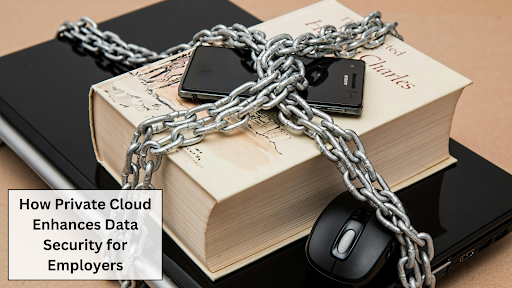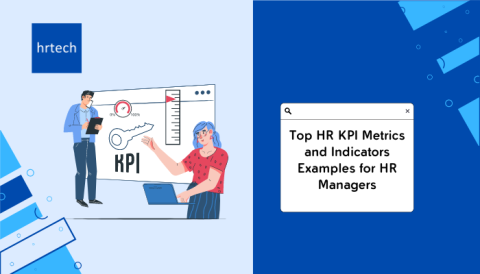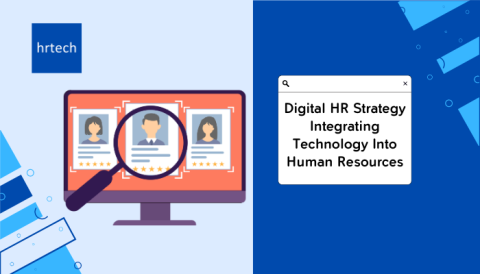Employers are confronted with unprecedented challenges in protecting sensitive data from a variety of hazards in the current digital landscape. Ensuring strong data security takes the front stage as companies depend more and more on cloud computing for their operations. Because of its common infrastructure and fewer customized security protections, public cloud solutions—while popular for their scalability and cost-effectiveness—often carry major hazards.

Picture Source: Pexels
Here is where the private cloud finds applications. Providing a dedicated space just for one company, private cloud solutions give improved data security control. Using private cloud technology will let companies better handle their particular security requirements, apply tailored policies, and have more control over their data. We will also discuss how private cloud contact center solutions support this improved security as we investigate the advantages of private clouds, especially in safeguarding private communication data.
Learning about Private Cloud
Modern data security plans depend on the idea of private clouds as they provide a specialized and safe environment catered to the particular demands of a company. This strategy comprises private cloud contact center solutions, which make use of the improved security characteristics of the private cloud to guard private data. Private cloud technology distinguishes itself in the field of data security as it offers its customers unique and configurable surroundings.
Definitions of Private Cloud
A private cloud in cloud computing is a system utilized just by one company. Though it might be housed on-site or by a third-party vendor, it is always focused on one company. This separation from other users guarantees security and makes more tailored control possible.
Comparison with Different Cloud Models
By contrast, several companies share public cloud services. The common character of the infrastructure might result in possible security flaws even if they provide scalability and financial savings. Combining aspects of public and private clouds, a hybrid cloud lets companies strike a compromise between security and economy of cost. It might not offer the same degree of control, though, as a completely private cloud.
Key Features of Private Cloud
Dedicated Resources
Private cloud environments provide exclusive access to computing resources. This isolation ensures that the performance and security of the cloud are not affected by other users or organizations.
Customizable Security Protocols
Organizations can implement tailored security measures, including specific firewalls, encryption methods, and access controls. This customization helps in addressing unique security requirements and compliance standards.
Enhanced Control
Private cloud environments offer complete oversight over IT infrastructure and data management. This extends to security policies, configurations, and monitoring.
Enhanced Control and Customization
One of the primary advantages of adopting a private cloud is the enhanced control and customization it offers. These features are crucial for organizations that require a high level of security and tailored solutions to meet their specific needs.
Greater Control Over Security Configurations
With a private cloud, organizations can fully control their IT infrastructure. This control extends to:
- Security Policies
Organizations can define and enforce their security policies tailored to their operational requirements and compliance needs.
- Access Controls
Customizable access controls allow for precise management of who can access specific data and applications within the cloud environment. This reduces the risk of unauthorized access and data breaches.
- Network Security
Private clouds enable organizations to set up their own firewalls and intrusion detection systems, providing a more secure network environment.
Customizable Security Measures
Private clouds allow organizations to implement security measures that are specifically designed for their unique needs. Key aspects include:
- Encryption
Organizations can choose the encryption protocols that best fit their security requirements, whether for data at rest or in transit.
- Firewall Configuration
Customizable firewalls can be set up to protect against specific threats and to ensure that only authorized traffic is allowed.
- Compliance Requirements
Private cloud environments can be configured to meet industry-specific compliance requirements, such as GDPR, HIPAA, or PCI-DSS. This ensures that the cloud infrastructure aligns with regulatory standards and best practices.
Benefits of Tailored Security Measures
The ability to customize security measures provides several benefits:
- Enhanced Protection
Tailored security configurations ensure that the private cloud environment is specifically designed to address the organization’s unique threat landscape.
- Increased Flexibility
Organizations can adjust their security protocols as their needs evolve, ensuring ongoing protection against emerging threats.
- Improved Compliance
By customizing security settings to meet regulatory requirements, organizations can better ensure compliance and avoid potential legal issues.
Enhanced Data Privacy
Organizations employing cloud services must give data privacy priority. Private clouds more successfully answer these issues than public cloud systems.
Respecting Privacy Issues
Data shared among several companies on a public cloud might create privacy issues because of the possibility of data access or disclosure without authorization. By offering an isolated setting only for one company, private clouds help to reduce these hazards. This division guarantees that sensitive information stays under protection from both within and outside attacks.
Separated Resources and Specific Tools
Private clouds provide isolated resources, hence all computer resources—including servers, storage, and network components—are committed only to one company. This solitude guarantees that the data of the company is not combined with that of other entities and lowers the possibility of data leaking.
The following Policy
Private clouds are meant to satisfy strict legal criteria. Private cloud systems may be set by companies to follow PCI-DSS, HIPAA, GDPR, and other industry standards and laws. Maintaining the privacy of data and avoiding legal consequences depend on this compliance.
Advanced Threat Protection
Advanced threat prevention offered by private clouds is crucial for shielding data from complex cyberattacks.
Executing Advanced Threat Detection
Private clouds let companies use cutting-edge threat detection systems. Among these systems are real-time monitoring systems and advanced analytics capable of rapidly spotting and addressing possible hazards. Using this proactive strategy, vulnerabilities are found and hazards are reduced before they create appreciable harm.
Real-time observing and response
Private cloud systems allow companies to implement real-time monitoring tools tracking system activity and network traffic constantly. This continuous awareness lets one react right away to suspicious behavior or possible breaches, hence lowering the interval between discovery and correction.
Reducing Cybersecurity Risk
Designed to manage great degrees of security, private cloud systems may be strengthened against certain kinds of assaults. To fight against cyberattacks, the cloud architecture includes strengthened protection mechanisms like automatic threat responses, intrusion prevention systems, and strong firewalls.
Disaster Recovery and Backup
Important components of data management are disaster recovery and backup; private clouds provide improved features in these areas.
Value of Disaster Recovery
Disaster recovery is being ready for and recovering from unanticipated catastrophes that could cause disturbance of company operations. Organizations in a private cloud environment can put thorough disaster recovery strategies fit for their particular requirements into action. This guarantees rapid restoration of important data and programs should a disaster or failure strike.
Improved Methods of Backup
Because they let companies schedule frequent backups and securely store data, private clouds offer strong backup options. Using automation, these backups guarantee constant availability of the most recent data for recovery. Furthermore offering redundancy and guaranteeing data availability even in case of physical damage to local equipment, private cloud environments give choices for on-site and off-site backups.
Disaster Recovery Plans
Using private clouds, companies may create disaster recovery plans comprising techniques including:
- Making sure data is copied over several sites helps to prevent loss.
- Using failover systems—that is, those that automatically turn to backup resources should main systems fail.
- Testing catastrophe recovery strategies routinely helps to guarantee their viability and preparedness.
Practical Applications
Analyzing case studies and actual implementations helps one to see the useful advantages of private cloud solutions.
Effective Application
To improve their data security, some companies have effectively put private cloud solutions into place. A financial organization may, for instance, utilize a private cloud to preserve confidential financial data, therefore guaranteeing industry compliance and preventing data breaches. To satisfy rigorous healthcare data security requirements, a healthcare provider may also use a private cloud to securely store patient records.
Results and Development
Adopting private cloud solutions usually results in better data security, more control over IT infrastructure, and more regulatory compliance. Companies often express stronger faith in their data security policies and a more strong IT system ready to address different security issues.
Conclusion
All things considered, private cloud systems offer a convincing way to improve data security inside companies. Among its several advantages are tailored security procedures, special resource allocation, and sophisticated threat prevention. These characteristics taken together handle important issues including disaster recovery, data privacy, and regulatory compliance. Private clouds guarantee that delicate data is well-protected from illegal access and any breaches by offering committed and separated infrastructure.
Moreover, the adaptability to customize security policies and use thorough backup and recovery strategies makes private clouds a wise decision for companies trying to protect their data and keep business continuity. In the complicated digital terrain of today, private cloud solutions provide a strategic edge for companies dedicated to strong data security and compliance.
Frequently Asked Questions (FAQs)
1. From what standpoint is the private cloud more secure than a public cloud?
Unlike public clouds, where resources are shared, private clouds isolate an organization’s data from outsiders and lower the risk of breaches by offering specific resources and tailored security measures.
2. In what ways may private clouds help with legal compliance?
Private clouds let companies set their systems to satisfy certain regulatory criteria such as GDPR, HIPAA, and PCI-DSS, therefore guaranteeing adherence to compliance standards and safeguarding of private data.
3. In a private cloud, what main advantages exist from disaster recovery?
Robust disaster recovery mechanisms include automatic backups, data replication, and failover systems provided by private clouds guarantee fast data restoration and hence minimize downtime should a disturbance strike.



